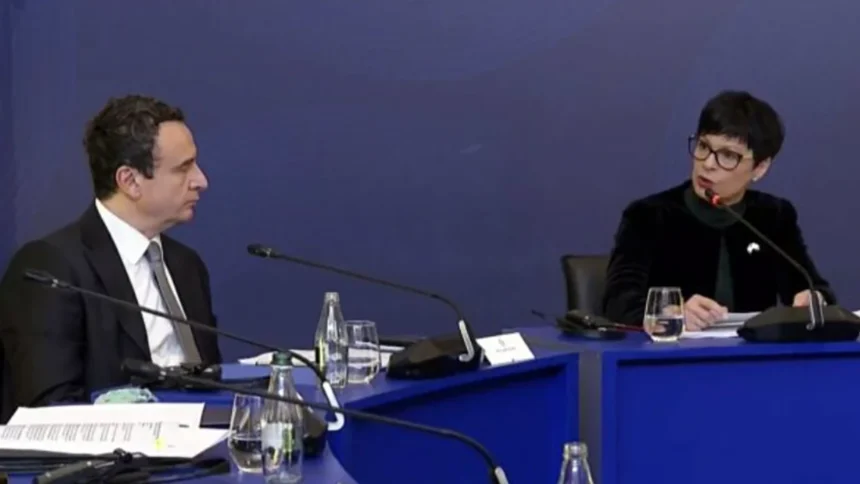EU Enlargement Commissioner Marta Kos highlighted at the Growth Plan Summit in Tirana that two of the six Western Balkan countries have yet to implement the required reforms, including Kosovo and Bosnia and Herzegovina, due to ineffective institutions.
Kos emphasized the importance of progress over the two years of the four-year Growth Plan implementation, noting that Albania and Montenegro are the most advanced, having completed around 50% of agreed reforms, while Kosovo remains stalled due to political gridlock.
“Two years have passed out of the four-year implementation period, and it is the right moment to review what has gone well and in which areas more effort is needed,” Kos said.
The EU report notes that Kosovo has not ratified agreements necessary to access Growth Plan funds, as the government has not been formed since the 9 February elections, blocking the approval of international agreements in parliament. The Growth Plan, a €6 billion investment package, allocates around €900 million to Kosovo, making it the largest beneficiary per capita.
Acting Prime Minister Albin Kurti called for the complete removal of EU sanctions, but experts warn that Kosovo’s political inaction risks missing critical funding. Albanian political analyst Ben Andoni noted:
“Kosovo faces a parliamentary deadlock and has not ratified agreements that would allow the disbursement of funds that North Macedonia, Serbia, and Albania have already started receiving. This is a political alarm—the country risks losing significant opportunities.”
Andoni stressed that, in addition to the Growth Plan funds, Kosovo has access to €2 billion in grants and €4 billion in soft loans, but political deadlock and lack of ratifications are preventing their utilization.
The Tirana Summit sends a clear message to Kosovo: without effective institutions and reforms, the country cannot fully access critical EU funding, leaving it behind its regional neighbors in the path toward EU integration.







